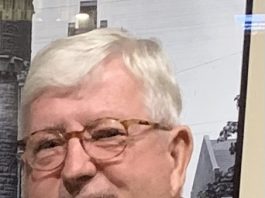January 10, 2011
AG, legislators support bill for safe disposal of prescription drugs
Legislation would deter abuse, clear obstacles to pharmacies offering drug drop-off option
INDIANAPOLIS – Because of the crisis Indiana faces in the abuse and misuse of prescription drugs, Attorney General Greg Zoeller and state lawmakers and regulators today announced a legislative proposal that would make it easier for Hoosiers to safely discard their unneeded or expired prescription drugs.
The bill, introduced into the 2011 session of the Indiana General Assembly, would revise statutory and regulatory requirements in Indiana law so that pharmacies could accept unused prescription drugs from customers and dispose of them securely and safely at their stores.
“Many parents might not realize that abuse of prescription drugs by teenagers is very common, and the source of the controlled substances is not a dealer on a street corner but the family medicine cabinet. Unused or outdated prescriptions easily get pilfered and the hazardous medications diverted for teen drug experimentation. Flushing away old medicines is not the best option either, since pharmaceutical pollutants can get into waterways. This bill is a good remedy to both problems, and I applaud the legislators for introducing it,†Zoeller said.
State Representative Kevin Mahan, R-Hartford City, is author of the legislation, House Bill 1121, and State Representative Scott Reske, D-Pendleton, and State Representative Randy Frye, R-Greensburg, are co-authors.
“As the former sheriff of Blackford County, I have unfortunately seen the abuse that can take place with prescription drugs and the liability they have in people’s homes. As sheriff, I took a proactive approach and organized a program for proper prescription disposal, which resulted in filling up eight 55-gallon barrels. This legislation is necessary to give pharmacies more control in dealing with discarded prescriptions. Another benefit to this legislation is the fact it does not require a police officer to be present while collecting this unused medication. It will give them the opportunity to participate if available, but will allow them the opportunity to fulfill their duties of keeping us safe,†Representative Mahan said.
“This is one of the many ways we are hoping to address in confronting the increasing problem of prescription drug abuse that is being experienced nationwide,†Representative Reske said.
“These programs give patients and health care providers a way to safely and effectively get these dangerous drugs out of the home. The bill will finally allow pharmacies to collect and destroy the very drugs they dispense,†said Lora Williams, president of the Indiana Board of Pharmacy, which would develop new rules if the bill passes.
In some other states, pharmacies provide disposal bins where consumers can safely discard their unneeded prescription pills, tablets and liquids. State statute would have to be changed for pharmacies in Indiana to be able to widely offer drug-disposal sites for controlled substances, however.
On September 25, the Attorney General’s Office, the Indiana State Police (ISP) and U.S. Drug Enforcement Administration (DEA) participated in the National Drug Take Back Day which allowed people to drop off unused and unwanted drugs at dozens of locations around Indiana. Approximately four tons of prescription drugs were collected in one day and properly destroyed by incineration. Although the Take Back Day event indicated there was pent-up demand for such collection points, federal law requires a law enforcement official to be present at a disposal site.
Mahan’s, Reske’s and Frye’s bill would allow pharmacies to participate in a disposal program to accept unused prescription medications, including controlled substances such as prescription painkillers. It would empower the Indiana Board of Pharmacy to designate who can accept those medications in keeping with the federal law.
If passed, the bill also would authorize the Board of Pharmacy to write regulatory rules to implement the program so that the medications can be securely discarded in an environmentally safe manner while protecting patients’ privacy. The Board of Pharmacy would work with the Indiana Department of Environmental Management (IDEM), the State Department of Health (ISDH), the Indiana State Police and other agencies in developing the new rules and licensing requirements.
Participating in the drug disposal program would be voluntary; pharmacies and other participating health facilities would not be required to offer disposal sites. “Many pharmacy retailers may be eager to offer this service voluntarily since it will draw customers into their stores where they might purchase other products. From a consumer standpoint, the convenience of being able to return unused drugs to pharmacies will mean that fewer medicines get diverted and abused. From a public safety standpoint, providing a drug disposal site no longer will entail taking a police officer off the street to supervise it,†Zoeller said.
According to IDEM, proper disposal of prescription and over-the-counter medications is an environmental concern. Pharmaceuticals, if flushed or poured down a drain, might not be removed during the sewage treatment process and the chemicals can make their way into lakes, streams and groundwater where aquatic species would be exposed to them. IDEM and cooperating Solid Waste Management Districts and other groups offer locations to discard unwanted medicines if they are not controlled substances. For more information, view this link: http://www.in.gov/recycle/6141.htm.
The Attorney General’s Office is the state’s consumer protection agency and brings licensing actions against licensed health professionals and entities. Zoeller thanked the legislators, the Indiana Board of Pharmacy, IDEM, Indiana State Police, DEA and other agencies for their efforts to reduce prescription drug diversion and abuse, and he urged the Legislature to pass the bill this session.




